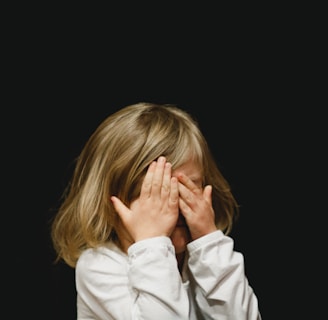Screen Time vs Outdoor Time Eye Health Planner (Kids/Adults)
Discover your eye health score with DoseWay's Screen Time vs Outdoor Time Eye Health Planner. Calculate risks, get personalized recommendations, and protect your vision today.
Check More Free Tools:
Try our Myopia Progression Risk from Screen Use (Age-Based)
Try our Diabetic Blindness Risk Calculator (Screen Time & Genetics)


Screen Time vs Outdoor Time Eye Health Planner: A Complete Guide to Protecting Your Vision
Understanding Digital Eye Strain and Myopia Prevention
In our technology-driven world, screen time management and outdoor exposure have become critical factors in maintaining ocular health. This article explains how DoseWay's Eye Health Planner Calculator helps users balance digital device usage with nature-based activities to reduce risks of digital eye strain, myopia progression, and blue light exposure damage.
Key Terms in Modern Eye Care
1. Screen Time
Time spent using digital devices (smartphones, computers, tablets) linked to:
Computer Vision Syndrome (CVS)
Accommodative Spasm (eye focusing fatigue)
Dry Eye Disease
2. Outdoor Time
Natural light exposure proven to:
Stimulate dopamine release (slows axial elongation in myopia)
Improve contrast sensitivity
Support circadian rhythm regulation
3. Critical Clinical Metrics
Screen Distance: Optimal 50-70 cm for adults (20-28 inches)
20-20-20 Rule: Break protocol for eye muscle relaxation
Lux Levels: Outdoor light intensity (>10,000 lux) vs indoor (<500 lux)
How the Eye Health Calculator Works
Parameters Measured
Input FactorClinical SignificanceIdeal RangeDaily Screen TimeMyopia progression risk<4 hours (adults)Outdoor ExposureDopamine synthesis>2 hoursScreen DistanceAccommodative stress>50 cmBreak FrequencyCiliary muscle recoveryEvery 20 mins
Interpreting Your Eye Health Score
Score Ranges & Risk Levels
80-100 (Green Zone)
Optimal balance
Low myopia risk
Maintain current habits
50-79 (Yellow Zone)
Moderate digital strain
Implement 20-20-20 rule
Increase outdoor activities
Below 50 (Red Zone)
High myopia progression risk
Consult ophthalmologist
Urgent habit changes needed
Why This Calculator Matters
Recent studies from the American Academy of Ophthalmology show:
Children with <1 hour daily outdoor time have 3x higher myopia risk
Every additional hour of screen time increases dry eye symptoms by 18%
Proper screen distance reduces asthenopia (eye fatigue) by 42%
Frequently Asked Questions
Q: How does outdoor light prevent myopia?
A: Sunlight triggers retinal dopamine release, inhibiting abnormal axial elongation of the eyeball.
Q: Can adults develop screen-related myopia?
A: Yes – acquired myopia from prolonged near-work affects 25% of adults over 30.
Q: What’s the science behind the 20-20-20 rule?
A: Every 20 minutes, 20-second breaks reset accommodative-convergence mechanisms, preventing spasmodic accommodation.
